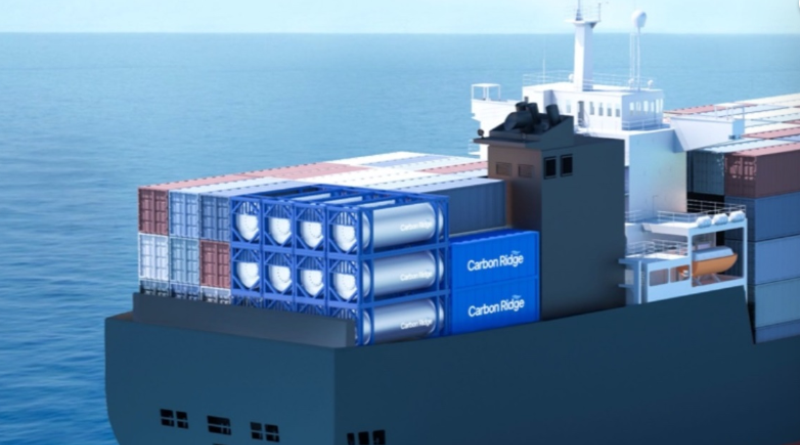Carbon Ridge Raises $9.5 Million to Advance Maritime Shipping Decarbonization Technology
Cleantech startup Carbon Ridge announced that it has raised $9.5 million in a funding round with proceeds aimed at advancing its low cost, modular carbon capture solution to help decarbonize the maritime shipping sector.
Maritime shipping accounts for approximately 3% of global greenhouse gas (GHG) emissions, and is a key focus area for companies looking to address their “Scope 3” value chain emissions.
According to Carbon Ridge, benefits of the solution include a small footprint, with a 75% in system volume relative to conventional CO2 capture technologies, and limited additional energy consumption of less than 5%. The OCCS technology also eliminates more than 99.9% of particulate, NOx and SOx emissions, resulting in a 5x cost reduction compared with alternative fuels such as methanol and ammonia, the company said.
Carbon Ridge said that the new capital will be used to advance the commercial demonstration of its OCCS solution.
Chase Dwyer, Founder & CEO of Carbon Ridge, said:
“With ever more apparent cost and supply limitations of alternative clean fuels for shipping, Onboard Carbon Capture is critical for the global maritime industry to decarbonize. Carbon Ridge has developed the most modular, low cost and operationally efficient carbon capture solution in the market to address current and future decarbonization targets.”
The financing round was led by Crosscut Ventures and Western Technology Investment (WTI), with participation from existing investors including The Grantham Foundation, Berge Bulk, Rusheen Capital Management and Plug and Play Ventures, as well as from Katapult Ocean, Incite, Spitzer Industries and Canopy Generations Fund.
Rick Smith, Co-Founder & Managing Director at Crosscut Ventures, said:
“Carbon Ridge exemplifies our Climate Tech thesis: find world class management working to solve the most pressing problems contributing to climate change. The company’s ingenious solution to nearly eliminate emissions from large maritime vessels is tackling head-on one of the main sources of man-made carbon emissions in a cost-effective manner.”
Source: esgtoday.com




